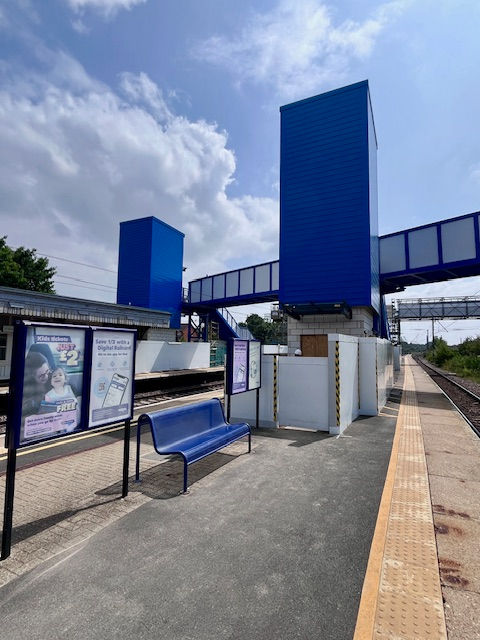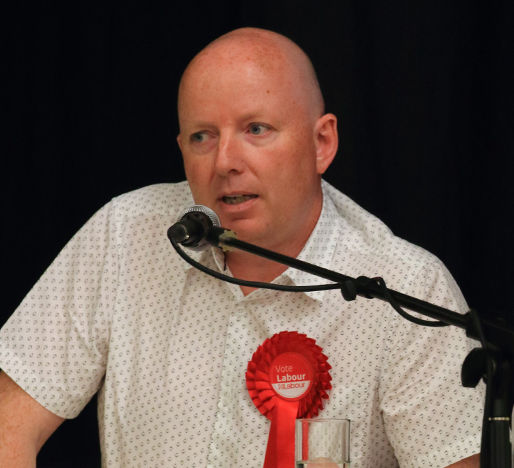Rail accessibility campaigners respond to local MP querying the need for a ‘Head of Inclusion&
- Julian Vaughan

- Oct 3, 2021
- 3 min read
The Bedfordshire Rail Access Network (BRAN) campaign group formed in 2017. Its aim is to improve accessibility across the Bedfordshire rail network, as well as ensuring that disabled people are involved at every stage of the improvement process. BRAN worked with other stakeholders to ensure a successful campaign for step-free access at Biggleswade station, due for completion in Autumn 2022. BRAN have now begun liaising with Govia Thameslink Railway, Luton Council and Sarah Owen MP to press for step-free access at Leagrave station.
Below is BRAN’s response to an article quoting Richard Fuller, the MP for NE Bedfordshire, who queried the need for the post of ‘Head of Inclusion’ recently advertised by East West Rail.
“We are disappointed to see Richard Fuller MP (North East Beds,) share on facebook an article where he is quoted, criticising the role of Head of Inclusion at East West Rail, including complaining about the job’s advertised salary. Here is the full quote from Mr Fuller in the article.
““Oh, good grief,” said Mr Fuller. “Inclusion is important when determining major infrastructure schemes, which is why I have been taking East West Rail to task for omissions and errors in their consultations.
“They shouldn’t need to hire someone, and at such a large salary, to ‘keep them on track’ with involving all interested parties. It should be inherent in how the CEO and senior executives approach their roles,” he said.
We agree with Mr Fuller that inclusion is indeed important, especially in major infrastructure schemes, and we are glad he is raising issues related to inclusion with the company. If he truly is a supporter of accessibility and inclusion, it is perplexing then, that he has singled out this particular role for criticism, when its sole focus is accessibility and inclusivity for all passengers?
40 per cent of the UK rail network is not accessible
The need to prioritise accessibility and inclusion within rail projects is an essential one because our current rail infrastructure is still not accessible for so many disabled people. In 2018 Leonard Cheshire published research that showed that 40 per cent of the rail network is not accessible to disabled people. Fuller’s own government recognise the need for improved accessibility on the rail network; announcing a series of initiatives earlier this year to help boost accessibility and inclusion. As this article shows the initiatives were welcomed by government, the rail industry and disabled passengers alike.
Only a quarter of all UK train stations have disability access to all platforms
Mr Fuller expresses a belief that accessibility and inclusion should be “inherent in how the CEO and senior executives approach their roles” again this is something that we agree with. Accessibility is such an important issue everyone working on the project needs to make it a priority. It is disingenuous however, when Mr Fuller suggests that this ‘mainstreaming’ approach is enough and there is no need for a dedicated inclusion role. Maybe if our current rail network was accessible and inclusive for all this would be a valid argument, but when the government’s own Disability Unit, admit in a blog from July 2021 that only a quarter of train stations have disability access to all platforms, it seems mainstreaming isn’t going to work.
The expertise, knowledge, skills and experience needed to lead on access and inclusion for a major rail infrastructure project like this are highly specialised, which is why the salary has to be a competitive one. Candidates who match the criteria will be hard to come by and highly sought after.”
Fiona Carey, Natalie Doig, Julian Vaughan of the Bedfordshire Rail Access Network.
3rd October 2021
Follow us on Facebook at: https://www.facebook.com/BedfordshireRailAccessNetwork
And on Twitter at: https://twitter.com/BedsRailAccess






Comments